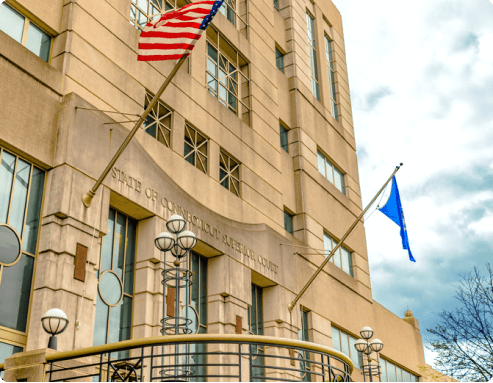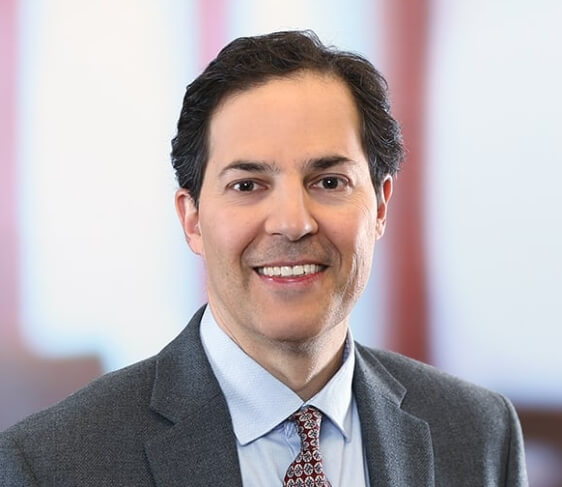
- $8.5 Billion Recovered
- Serves Clients Nationwide
- Rated #1 by U.S. News & World Report for 2022
Shipyards, mines and manufacturing in Connecticut have put people at risk of asbestos exposure. Veterans were also at risk of exposure on military bases in the state. Top mesothelioma lawyers have filed claims for people in Connecticut. They've helped people get compensation.

When choosing a Connecticut mesothelioma lawyer, ask them about their records of success with cases similar to yours. Working with a lawyer who has experience in mesothelioma cases is important because state courts require strong proof of asbestos exposure, timelines and employer or product liability.
Your Connecticut asbestos attorney should understand the effects of asbestos exposure in the state and complexities of mesothelioma. According to the latest data from the Centers for Disease Control and Prevention, from 2018 to 2022 the mesothelioma incidence rate was 0.70 per 100,000 people and 171 new diagnoses were reported.
Top law firms have secured some significant victories for families and mesothelioma survivors in Connecticut, including favorable settlements and large trial verdicts. National law firms dedicated to asbestos and mesothelioma cases often have an advantage in asbestos litigation because of their extensive experience and resources. Of the nearly 4,000 asbestos lawsuits filed in the U.S. each year, a few top firms handle the vast majority.



Asbestos lawsuits in Connecticut reflect its history as a shipping hub and home to many naval yards. Millions in mesothelioma compensation have been secured.
Notable Connecticut Settlements and Verdicts
Settlements in mesothelioma cases often range from $1 million to $2 million. Mesothelioma verdicts in Connecticut are often higher. The size of a verdict, settlement or trust fund payment depends on the circumstances of the case.
Renowned lawyers will provide you with personal support throughout the legal process. You can expect attorneys to make this process as easy and comfortable for you and your family as possible.
Steps to a Mesothelioma Claim
Sometimes people file their legal claims in jurisdictions outside of the state where they live. This can happen because of factors such as asbestos exposure that happened elsewhere or a defendant is headquartered in another state. A national law firm will be able to assess this necessity and manage your case in the right jurisdiction.

When filing a mesothelioma claim, the right legal representation is everything. We’ll connect you to a top lawyer who will help you secure financial compensation.
Find an AttorneyAsbestos exposure in Connecticut most often happens at work. Employees at aircraft manufacturers, steel mills, chemical plants and power plants faced a higher risk. Factories often used asbestos insulation for machinery. It was also heavily used in construction.
Sites in Connecticut Known for Asbestos Exposure
People in Connecticut also have a risk of environmental exposure. A former anthophyllite mine in Litchfield County exposed workers and nearby residents to airborne asbestos fibers. Asbestos fibers in schools, historic buildings and older homes pose a danger in the state.
From 1919 to 1989, Raymark Industries in Stratford manufactured automotive parts that contained asbestos, such as brakes and clutch components. The company’s operations exposed plant workers and nearby residents in danger. The entire area became an EPA Superfund Site in the 1990s.
Raymark dumped asbestos, lead and other toxic chemicals on the land around its factory and on surrounding properties, including at least 46 homes. When the U.S. government sued Raymark over cleanup costs estimated at $200 million, the company tried to sue the contaminated homeowners to avoid paying. The EPA and Connecticut state government worked together to finalize a 1998 settlement that protected homeowners from liability. Under federal Superfund law, the symbolic $1 payment to each government created an official settlement that legally blocked Raymark’s attempt to shift blame.
Asbestos exposure at work was common in many commercial and industrial locations in Connecticut. Cities with high exposure rates include Bridgeport, Granby, Hartford, New Haven and New London.
Some veterans were exposed to the toxic material at bases and Navy shipyards in Connecticut. Insulation and parts containing asbestos were common on ships and submarines during WWII and until the 1980s.
Higher-Risk Jobs in Connecticut
Companies in Connecticut can also be held responsible for secondary asbestos exposure. This type of exposure happens when a worker unintentionally brings asbestos fibers home on their clothes, hair, skin or shoes from the jobsite, exposing their loved ones. The state requires companies to take reasonable steps to prevent exposure when the risks are well-known in the industry.
Many laws in Connecticut are friendly to mesothelioma patients and their families. But the state also sets a high bar for all types of proof, which makes the process more complicated. These complexities highlight the importance of working with an experienced lawyer with a solid track record in the state.
Connecticut Legislative Changes
Talc-related lawsuits are also shaping Connecticut’s litigation landscape. In 2024, a Connecticut jury awarded Evan Plotkin $15 million after he developed mesothelioma from decades of using Johnson & Johnson’s talc-based baby powder. A judge later increased the award to $25 million, adding $10 million in punitive damages.
Plotkin’s case demonstrated asbestos exposure from cosmetic talc products can lead to mesothelioma, expanding the types of exposure claims recognized in Connecticut courts. Johnson & Johnson has announced plans to appeal the verdict.
Recommended ReadingStay up-to-date on treatment, research, clinical trials, doctors and survivors
The information on this website is proprietary and protected. It is not a substitute for professional medical advice, diagnosis or treatment. Any unauthorized or illegal use, copying or dissemination will be prosecuted. Please read our privacy policy and terms of service for more information about our website.
This website and its content may be deemed attorney advertising. Prior results do not predict a similar outcome.
The Mesothelioma Center’s claim as the most trusted resource is based on our more than 150 5-star Google and BBB reviews. Our organization also helps more than half of all mesothelioma patients annually diagnosed.
Your web browser is no longer supported by Microsoft. Update your browser for more security, speed and compatibility.
If you are looking for mesothelioma support, please contact our Patient Advocates at (855) 404-4592
The Mesothelioma Center at Asbestos.com has provided patients and their loved ones the most updated and reliable information on mesothelioma and asbestos exposure since 2006.
Our team of Patient Advocates includes a medical doctor, a registered nurse, health services administrators, veterans, VA-accredited Claims Agents, an oncology patient navigator and hospice care expert. Their combined expertise means we help any mesothelioma patient or loved one through every step of their cancer journey.
More than 30 contributors, including mesothelioma doctors, survivors, health care professionals and other experts, have peer-reviewed our website and written unique research-driven articles to ensure you get the highest-quality medical and health information.
My family has only the highest compliment for the assistance and support that we received from The Mesothelioma Center. This is a staff of compassionate and knowledgeable individuals who respect what your family is experiencing and who go the extra mile to make an unfortunate diagnosis less stressful. Information and assistance were provided by The Mesothelioma Center at no cost to our family.LashawnMesothelioma patient’s daughter


Lahav, J. (2026, February 9). Connecticut Mesothelioma Lawyers. Asbestos.com. Retrieved February 26, 2026, from https://www.asbestos.com/mesothelioma-lawyer/connecticut/
Lahav, Joe. "Connecticut Mesothelioma Lawyers." Asbestos.com, 9 Feb 2026, https://www.asbestos.com/mesothelioma-lawyer/connecticut/.
Lahav, Joe. "Connecticut Mesothelioma Lawyers." Asbestos.com. Last modified February 9, 2026. https://www.asbestos.com/mesothelioma-lawyer/connecticut/.
Connect with a mesothelioma lawyer to find out if you or a loved one is eligible for compensation for:
Attorneys are available to discuss your case today
Over $30 billion available for asbestos victims. Time limits may apply
A mesothelioma lawyer who specializes in asbestos litigation reviewed the content on this page to ensure it is legally accurate.

William A. Davis is an attorney specializing in complex commercial litigation, with an emphasis in health care disputes, at a firm he founded in Washington, D.C. He also serves as senior counsel at The Peterson Firm.
Our fact-checking process begins with a thorough review of all sources to ensure they are high quality. Then we cross-check the facts with original medical or scientific reports published by those sources, or we validate the facts with reputable news organizations, medical and scientific experts and other health experts. Each page includes all sources for full transparency.
Please read our editorial guidelines to learn more about our content creation and review process.
